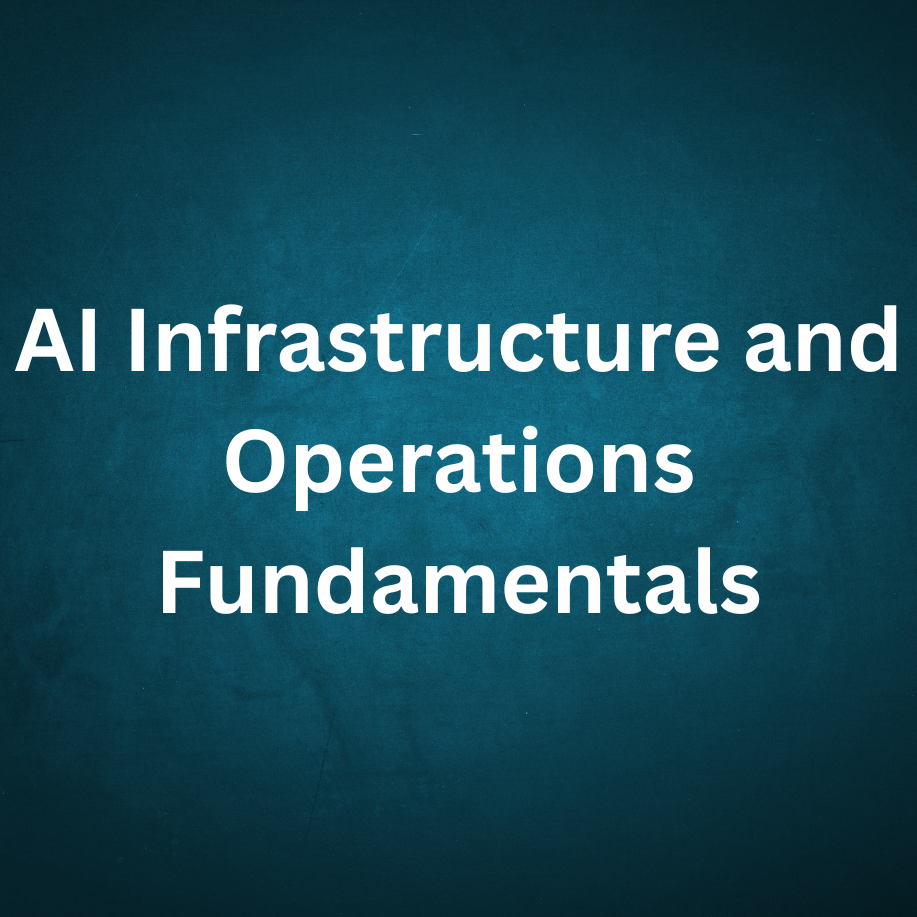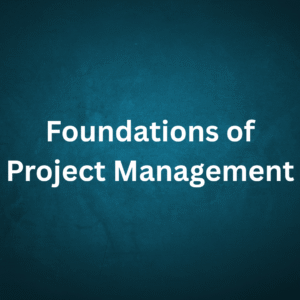Description
-
📘 Course Title:
AI Infrastructure and Operations Fundamentals
📅 Duration:
6–8 Weeks (can be adjusted based on pace)
🎯 Target Audience:
-
IT administrators
-
Cloud engineers
-
Data engineers
-
DevOps professionals
-
Beginners aiming to enter AI/ML infrastructure roles
🔹 Module 1: Introduction to AI Infrastructure
Topics:
-
What is AI infrastructure?
-
Types of AI workloads (training vs inference)
-
Basic architecture of AI systems
-
Overview of compute, storage, and network needs for AI
Outcomes:
-
Understand core infrastructure requirements for AI
-
Recognize different types of AI system designs
🔹 Module 2: Hardware Components for AI
Topics:
-
CPUs vs GPUs vs TPUs
-
GPU memory, processing cores, and parallelism
-
High-performance networking (InfiniBand, NVLink)
-
Storage solutions (NVMe, SSDs, distributed file systems)
Hands-On Labs:
-
Benchmarking performance with and without GPUs
🔹 Module 3: Software Stack for AI Operations
Topics:
-
AI/ML frameworks (TensorFlow, PyTorch, JAX)
-
OS and drivers (Linux, CUDA, cuDNN)
-
Containerization with Docker and Podman
-
Using Kubernetes for AI workloads
Hands-On Labs:
-
Run a simple training job using Docker + TensorFlow
-
Set up GPU support in containers
🔹 Module 4: Data Pipeline and Management
Topics:
-
Data ingestion, transformation, and storage
-
Data lakes and warehouses
-
ETL tools (Apache Airflow, Kafka basics)
-
Versioning datasets (DVC, Delta Lake)
Hands-On Labs:
-
Create a basic data pipeline with Airflow
🔹 Module 5: Model Training and Inference Infrastructure
Topics:
-
Distributed training techniques
-
Hyperparameter tuning and resource optimization
-
Inference serving architecture (REST, gRPC)
-
Tools: TensorFlow Serving, TorchServe, ONNX Runtime
Hands-On Labs:
-
Deploy a model with TensorFlow Serving
🔹 Module 6: Cloud and On-Premise Deployment Options
Topics:
-
AI in public cloud (AWS, Azure, GCP AI offerings)
-
On-premise solutions (NVIDIA DGX, OpenShift AI)
-
Hybrid and edge AI infrastructure
-
Cost optimization strategies
Hands-On Labs:
-
Compare cloud AI services (e.g., SageMaker vs Vertex AI)
🔹 Module 7: MLOps and AI DevOps Fundamentals
Topics:
-
CI/CD pipelines for ML (MLFlow, Kubeflow)
-
Monitoring models and infrastructure
-
Model drift and retraining
-
Infrastructure as Code (Terraform, Helm)
Hands-On Labs:
-
Build a simple ML CI/CD pipeline with MLFlow
🔹 Module 8: Security, Compliance, and Scalability
Topics:
-
AI infrastructure security essentials
-
Role-based access control (RBAC)
-
Data privacy regulations (GDPR, HIPAA)
-
Scaling infrastructure for large models (LLMs)
Hands-On Labs:
-
Set up RBAC on a Kubernetes AI cluster
🔹 Capstone Project
Project Idea:
Deploy a full AI workflow — data ingestion, model training, serving, and monitoring — using containerized infrastructure and cloud-based tools.
📜 Certification & Evaluation
-
Weekly quizzes
-
Final hands-on project submission
-
Completion certificate (optional badge for cloud/GPU setup)
-





Reviews
There are no reviews yet.